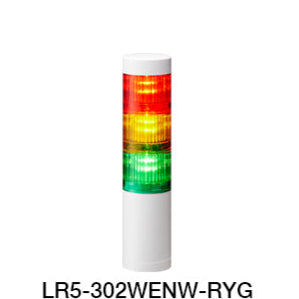
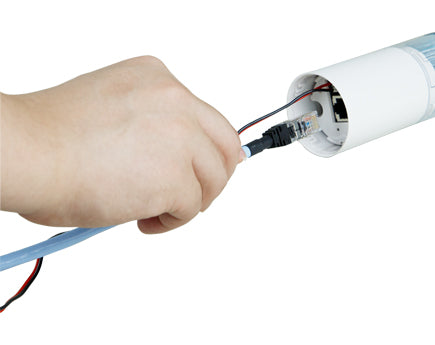
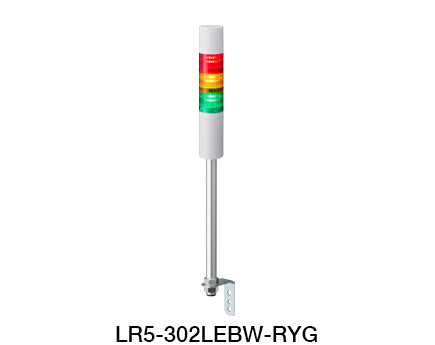
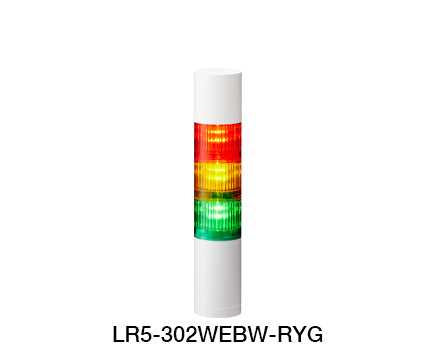
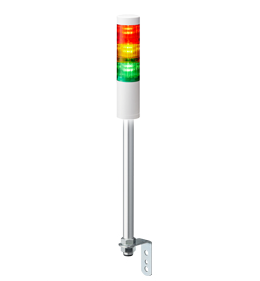
LR5-LAN, Φ50 Signal Tower (Ethernet Communication)
Buzzer:With Buzzer
Mounting:Direct Mounting with 3-point screw
Email when you want to order more.
Pickup currently unavailable at Shop location
LR5-LAN, Φ50 Signal Tower (Ethernet Communication)
With Buzzer / Direct Mounting with 3-point screw
Shop location
Pickup currently unavailable
2 Leng Kee Road
#05-01 Thye Hong Centre
Singapore 159086
Singapore
Choose options
Direct LAN Control from Industrial PCs/PLCs Makes Configuring & Signaling Easy
| Before | After |
| In an industrial PC-controlled system, a contact output board was being used, leading to an increase in component count and complications in inventory and delivery management. | With direct control of signal towers via HTTP or Modbus/TCP, the need for a contact output board has been eliminated. |

Usage Scenarios
Control with Industrial PC/PLC
|
Command control directly from Industrial PCs or PLCs. Eliminate the need for contact output boards and reduce the number of required contact points. |
 |
 |
Notification from Higher-Level Systems
| SCADA and production management systems can display status and alerts using standard protocols. By visualizing alerts not only on monitors, but also through signal towers (which are common in manufacturing environments), the operators can quickly grasp information and prevent oversights. |
 |
 |
Simple Software Design
Command Generation Feature |
Sample Source Code |
Comprehensive Flashing Presets |
| After logging into the LR5-LAN via a web browser, select the desired operation from the setting screen to display the corresponding command. This allows for easy command verification without the need to read the user manual, reducing time spent on software development. | Sample source code for operating the LR5-LAN is available on the product’s web page. Various programming languages are provided for Windows® and Linux, allowing you to quickly test it using your preferred or project-specific language. | Seven preset patterns for LED control are available. Since Flashing operations can be executed through command control alone, it reduces the effort required for setting clock pulses in PLCs. |


Reduce Wiring Labor

